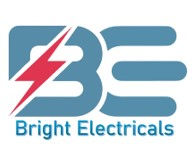Understanding EV Charger Grants: Commercial vs Residential Schemes
- Brin Mikhail

- Apr 19, 2024
- 2 min read
Updated: Dec 31, 2025

As you explore the options for installing electric vehicle (EV) chargers, understanding the differences and similarities between the Workplace Charging Scheme (WCS) and the Electric Vehicle Charger Grant for Residential Properties is crucial. Let's break down their structures with Bright Electricals:
EV Charger Grants Similarities:
1.Grant Coverage:
Both schemes offer financial support towards purchasing and installing EV charge points.
They provide grants covering up to 75% of the total costs, with a maximum grant cap per socket.
2.Geographical Availability:
Both schemes are available across England, Wales, Scotland, and Northern
Ireland.
3.Installer Requirement:
Authorised installers like Bright Electrical Engineering LTD (us!) must install charge points under both schemes to ensure compliance and safety standards.
EV Charger Grants Differences:
Workplace Charging Scheme (WCS):
1.Eligibility:
Open to businesses, charities, public sector organisations, and small accommodation businesses.
Installation is for workplaces or commercial sites.
2.Maximum Sockets:
It allows for installing up to 40 sockets across all sites, with a cap of one socket per site if installed at multiple locations.
3.Scope:
Primarily targets organisations aiming to provide EV charging facilities for employees, customers, or workplace visitors.
4.How to Apply:
Use the Workplace Charging Scheme (WCS) application form, get a voucher for installation, and contact an OZEV installer like Bright Electrical Engineering LTD.

EV Charger Grant for Residential Properties:
1.Eligibility:
Available to flat owners and renters with residential properties and private off-street parking. (Sadly, grants for house owners have ended.)
Intended for individuals or households residing in flats or residential properties.
2.Maximum Grant Cap:
Offers a maximum grant of £350 per socket, applicable to residential properties with eligible electric vehicles.
3.Private Parking Requirement:
Requires homes to have their own private off-street parking space for installation eligibility.
4.How to Apply
Contact an OZEV-approved installer like Bright Electrical Engineering LTD for a free in-person survey and get support for the grant.
Conclusion:
The Workplace Charging Scheme (WCS) and the EV Charger Grant for Residential Properties have different target audiences and scopes. The WCS is for workplaces, while the residential grant is for flats or residential properties. Understanding these distinctions helps select the most suitable option. The application process is different: for the WCS, apply to the government first for vouchers, while for residential properties, contact government-approved installers directly. Bright Electricals simplifies the grant application process for EV charging installations. Contact us today to experience our exceptional services.





Comments